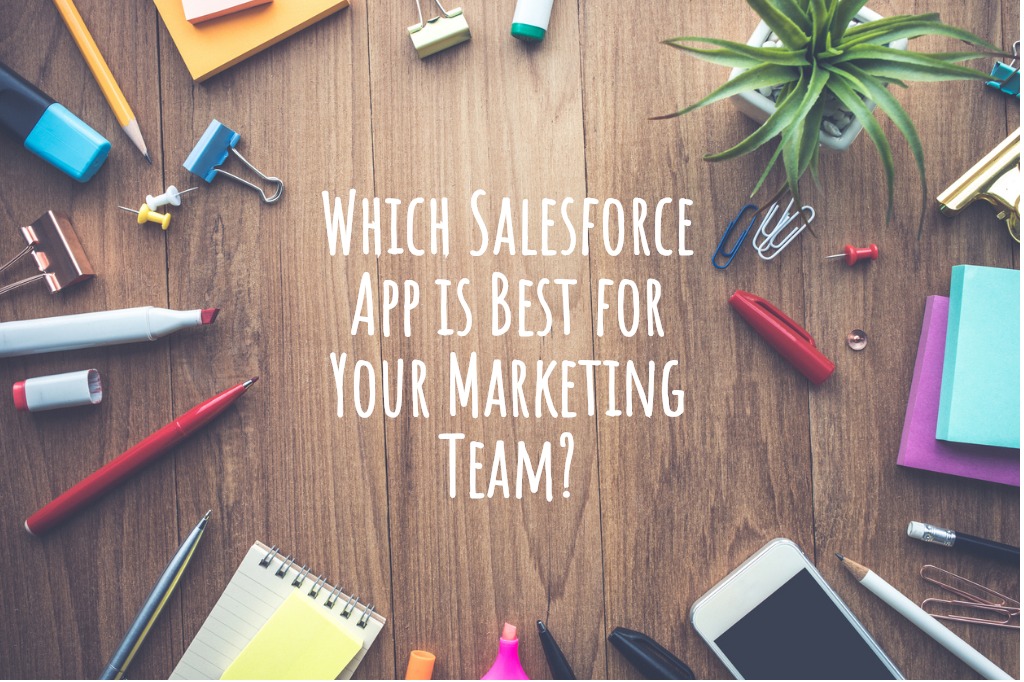 Pardot and Marketing Cloud are both Salesforce applications that can help a business’s Marketing Team. While the two have similar functions and can run independently from Salesforce, they have very different capabilities, which we learned from our own technology expert, Bill, with CSS Tec. Bill is incredibly familiar with Salesforce and he helps with its implementation, configuration, and development for companies who want to utilize it to the best of its ability. Over the course of the interview, Bill informed us how Pardot and Marketing Cloud can best fit the needs of specific businesses.
Pardot and Marketing Cloud are both Salesforce applications that can help a business’s Marketing Team. While the two have similar functions and can run independently from Salesforce, they have very different capabilities, which we learned from our own technology expert, Bill, with CSS Tec. Bill is incredibly familiar with Salesforce and he helps with its implementation, configuration, and development for companies who want to utilize it to the best of its ability. Over the course of the interview, Bill informed us how Pardot and Marketing Cloud can best fit the needs of specific businesses.
“No matter what marketing automation tool you use, you’re only as strong as your weakest point. Having a targeted, consistent marketing plan with a clear vision of your expected outcomes will help you succeed, but if your marketing plan is weak, no marketing automation tool can fix that,” says Bill Powell, Sr. Salesforce Solutions Engineer.
So, which application is better?
Well, it depends.
It depends on the size of the business.
Pardot is ideal for small to mid-size businesses (of about to 100 employees or less) while Marketing Cloud is ideal for large companies, though it also works well for all-sized businesses. Pardot is simple in comparison to Marketing Cloud. Pardot is “good right out of the box” and perfect for small or new marketing teams who just need the basics. During our interview with Bill, he explained how Pardot had proven to work wonders for one-person marketing teams. Originally, some of these one-person marketing teams were forced to communicate with the entire company all on their own, but by implementing Pardot, the marketing team could complete their tasks with more ease and at a quicker pace. Bill shared that he believes that Marketing Cloud is more specific to individual journeys in a B2C environment whereas Pardot is more specialized for B2B.
“As a small marketing team, Pardot has been central to how we communicate with our customers. It is easy to use while also offering powerful tools such as the engagement studio workflow, that offer us the automation and simplicity we need,” says Amy Green, Director of Marketing, ZynBit.
It depends on the “tech-savviness” of employees.
Pardot’s simplicity is an advantage for a marketing team that is just switching over from performing tasks manually and for marketing teams that aren’t terribly technical. While Pardot requires training, as any application will so that employees can learn the new system, it requires far less training than Marketing Cloud. Because Marketing Cloud has more “moving parts,” all its optional add-ons, training for it takes longer and the length and depth of the training is entirely dependent on what and how many add-ons a company has, and its implementation will likely require more tech employees to help teach and maintain the application. If employees in a marketing team are dedicated to learning new technology and adapt well to it, Marketing Cloud is a great choice as it can perform more specialized tasks and excels with social media.
It depends on the budget.
To put it simply, Pardot is more cost effective than Marketing Cloud. Therefore, businesses with a limited marketing budget may find Pardot more appealing since it definitely gets the job done for small marketing teams. If a company with a larger marketing budget and an established marketing team with a lot of projects is looking for an application, while Pardot may suffice, Marketing Cloud would be an ideal choice.
Both Pardot and Marketing Cloud have similar functions and Bill noted that he wouldn’t be surprised if they became one someday, but currently, businesses must decide between them. Pardot and Marketing Cloud both have pros and cons, and ultimately, the better application is entirely dependent on the needs of the business that would use it.
“Salesforce is a unique CRM that works across all industries! As the marketing leader at CSS, we are thrilled to share that Pardot or Marketing Cloud can be utilized independently or in conjunction with Salesforce,” says Sharon Tsao, CMO of Contemporary Staffing Solutions.
